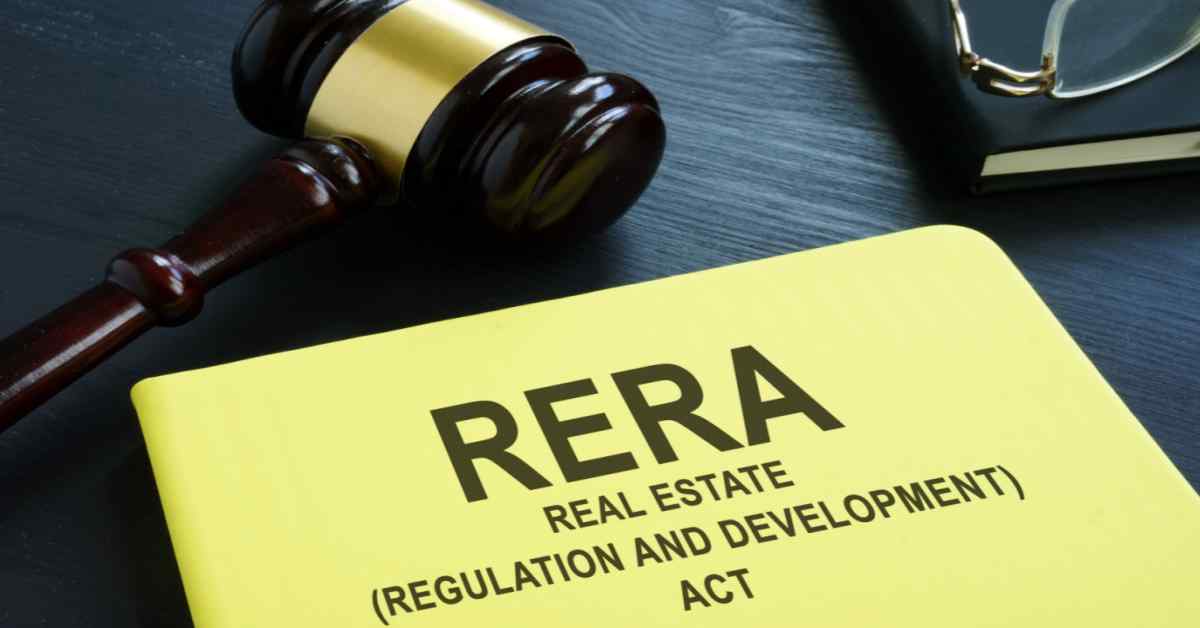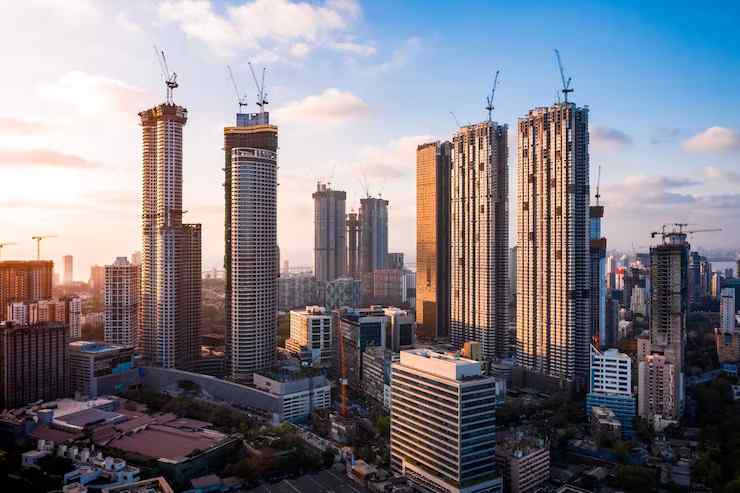Table of Contents
Quality Service Guarantee Or Painting Free

Get a rental agreement with doorstep delivery

Find the BEST deals and get unbelievable DISCOUNTS directly from builders!

5-Star rated painters, premium paints and services at the BEST PRICES!
Loved what you read? Share it with others!


Submit the Form to Unlock the Best Deals Today
Check Your Eligibility Instantly

Experience The NoBrokerHood Difference!
Set up a demo for the entire community
RERA Rules for Redevelopment in India: What You Need to Know
Table of Contents
Real Estate Regulation and Development Act (RERA) was introduced in 2016 in India to ensure transparency and accountability in the real estate sector. The act governs various aspects of real estate development, including redevelopment of properties.
Recommended Reading

RERA Bill 2016 Guide - Real Estate Regulation and Development Act 2016
January 31, 2025
6578+ views

Force Majeure Clause: Meaning, Clause in RERA and Impact on Homebuyers
January 31, 2025
5056+ views

RERA Maharashtra Demystified: Know Your Rights as a Homebuyer
January 31, 2025
6712+ views

Here’s How the RERA Telangana Has Helped Maintain the State Real Estate
January 31, 2025
6675+ views

AP Rera Handbook: The Complete Guide To Andhra Pradesh Rera
January 31, 2025
6733+ views
RERA rules for redevelopment are designed to provide transparency, accountability, and protection to property owners and buyers. Understanding these rules and regulations is crucial for anyone looking to invest in property redevelopment in India. By being aware of your rights and responsibilities, you can make informed decisions about your real estate investments
In this blog, we'll delve into the RERA rules for redevelopment and how they impact property owners, developers, and buyers. Read on to make informed decisions about your real estate ventures. Don't miss out on this crucial information - dive in and start reading now!
Quality Service Guarantee Or Painting Free

Get a rental agreement with doorstep delivery

Find the BEST deals and get unbelievable DISCOUNTS directly from builders!

5-Star rated painters, premium paints and services at the BEST PRICES!
RERA Rules for Redevelopment in India

The Real Estate (Regulation and Development) Act, 2016 (RERA) was introduced to bring transparency and accountability in the Indian real estate sector. It mandates developers to register their projects with the regulator and comply with various rules and regulations.
The RERA rules for redevelopment are meant to ensure that the rights of the property owners and the tenants are protected.
The RERA regulations for redevelopment apply to both residential and commercial projects. The rules cover various aspects such as project registration, project completion, and dispute resolution. Under RERA, developers are required to provide information about the project, including the proposed construction schedule and the details of the proposed amenities. Developers are also required to open an escrow account to ensure that the funds collected from the property owners are used only for the redevelopment project.
RERA Rules for Redevelopment in Mumbai

Mumbai, the financial capital of India, has a large number of redevelopment projects underway. The Real Estate (Regulation and Development) Act, 2016 (RERA) mandates developers to register their projects with the regulator and comply with various rules and regulations. The RERA rules for redevelopment in Mumbai aim to ensure that the rights of the property owners and the tenants are protected.
Developers must submit several documents to the RERA authorities for registering their redevelopment projects in Mumbai. These documents include the project plan, the architectural plans, the structural plans, the list of materials to be used in the construction, and the agreements with the contractors.
In case of disputes related to redevelopment, property owners in Mumbai can file a complaint with the RERA authorities. The RERA authorities have the power to resolve disputes and take several actions in case a developer fails to comply with the RERA rules, such as imposing fines, cancelling the registration of the project, or even taking the developer to court.
RERA redevelopment rules in Pune and other parts of Maharashtra are more or less similar to the rules for redevelopment of old buildings in Mumbai.
RERA Rules for Redevelopment in Bangalore

Bangalore, also known as the Silicon Valley of India, has a thriving real estate sector. The RERA rules for redevelopment in Bangalore are meant to bring transparency and accountability in the real estate sector and to ensure that the rights of the property owners and the tenants are protected.
Developers must register their redevelopment projects with the RERA authorities in Bangalore and comply with the rules and regulations laid down by the regulator. Property owners in Bangalore can seek the help of the RERA authorities in case of disputes related to redevelopment.
In case a developer fails to comply with the RERA rules for redevelopment in Bangalore, the regulator can take several actions, including imposing fines, cancelling the registration of the project, or even taking the developer to court. The RERA rules in Bangalore are meant to ensure that the real estate sector operates in a transparent and accountable manner.
RERA Rules for Redevelopment in Kolkata
Kolkata, the cultural capital of India, has a large number of redevelopment projects underway. The RERA rules for redevelopment in Kolkata aim to bring transparency and accountability in the real estate sector and to ensure that the rights of the property owners and the tenants are protected.
Developers must register their redevelopment projects with the RERA authorities in Kolkata and comply with the rules and regulations laid down by the regulator. Property owners in Kolkata can seek the help of the RERA authorities in case of disputes related to redevelopment.
RERA Rules for Redevelopment in Chennai
Chennai, also known as the Detroit of South Asia, has a thriving real estate sector. The RERA rules for redevelopment in Chennai aim to bring transparency and accountability in the real estate sector and to ensure that the rights of the property owners and the tenants are protected.
Developers must register their redevelopment projects with the RERA authorities in Chennai and comply with the rules and regulations laid down by the regulator.
RERA Redevelopment Rules in Hyderabad
One of the key provisions of RERA in Hyderabad is the requirement for developers to obtain all necessary approvals and permits before commencing work on a redevelopment project. Developers must also deposit 70% of the funds collected from the buyers in a separate account, to be used exclusively for construction purposes.
Another important aspect of RERA redevelopment rules in Hyderabad is the mandatory registration of all projects with the RERA authority. This helps ensure that the project is being executed as per the approved plans, and also provides an avenue for buyers to raise any concerns they may have. Developers must also furnish a completion certificate at the end of the project, certifying that the construction is in compliance with the approved plans and relevant regulations.
Documentation Requirements

Developers must submit several documents to the RERA authorities for registering their redevelopment projects. These documents include
- project plan
- architectural plans
- structural plans
- list of materials to be used in the construction
- agreements with the concerned parties
- environmental clearance
- fire safety clearance
- copy of the title deeds of the property
- and the no-objection certificates from the relevant authorities.
Developers are required to obtain various approvals and sanctions before starting the construction. The RERA authorities can also ask for additional documents if required.
What is a RERA Redevelopment Agreement Between Society and Developer?
A RERA Redevelopment Agreement between Society and Developer refers to a legally binding contract between the residents of a housing society and the developer responsible for redeveloping their property. This agreement outlines the terms and conditions under which the redevelopment project will be executed, including details such as the scope of work, construction timeline, cost of the project, and dispute resolution mechanisms.
Under RERA, it is mandatory for all redevelopment projects in India to comply with the regulations set by the RERA authorities. This includes registering the redevelopment project with the RERA authorities and obtaining necessary approvals before proceeding with construction.
The RERA Redevelopment Agreement between Society and Developer is an important document as it provides clarity and protects the interests of both parties involved in the project. For the residents of the housing society, the agreement outlines the benefits they will receive from the redevelopment, such as improved amenities, increased carpet area, and better living conditions. For the developer, the agreement serves as a legal framework for executing the project as per the agreed terms and conditions.
It is important to note that the RERA Redevelopment Agreement between Society and Developer must be in line with the RERA regulations and must be reviewed by a legal expert to ensure that it protects the rights and interests of both parties involved. Need help finding the right legal expert to review your agreement? Head over to NoBroker Legal Services to acquire experienced and knowledgeable legal professionals.
Tips to Consider Before Investing in a Redeveloped Property

Redevelopment of properties can be a complex process, but with the right approach, it can be a profitable investment. Here are some tips to maximise your return on investment in a redeveloped property:
- Conduct thorough research about the location and the developer.
- Make sure the developer is registered with RERA and has a good track record.
- Check the terms and conditions of the redevelopment agreement carefully.
- Evaluate the proposed amenities and the completion schedule.
- Take the help of a property consultant to ensure that your rights are protected.
Latest News on Redevelopment Rules in Mumbai
Redevelopment of properties has been a hot topic in Mumbai for many years. The city has seen many redevelopment projects, both big and small, in recent years. The latest news on MHADA redevelopment rules is that the state government has approved the redevelopment of several old buildings in the city. This will provide a much-needed boost to the real estate sector and will also provide new and improved homes to the residents.
Redevelopment Rules for Pagdi System
The pagdi system, also known as the pugree or patyo system, is a traditional form of property ownership prevalent in Mumbai, India. In this system, the property owner (known as the "pagdi tenant") pays a nominal rent to the original owner or "pagdi lord" and has the right to occupy and use the property, but does not have the right to sell or transfer it.
The Real Estate Regulation and Development Act (RERA) was enacted in 2016 to regulate the real estate sector and protect the interests of homebuyers. Under RERA, all ongoing and new residential redevelopment projects in Mumbai must follow specific rules and regulations.
For pagdi system homes, the rules for redevelopment are as follows:
- The pagdi tenant must give their written consent for the redevelopment project.
- A registered agreement must be signed between the pagdi tenant and developer, which should clearly state the terms and conditions for the redevelopment.
- The developer must also obtain a no-objection certificate from the pagdi lord.
- A certain percentage of the newly constructed homes must be reserved for the pagdi tenants.
- The developer must adhere to all the provisions of RERA and other relevant laws while carrying out the redevelopment project.
The RERA redevelopment rules for pagdi system homes aim to ensure that the rights of the pagdi tenants are protected during the redevelopment process and that they are adequately compensated for their property
How can NoBroker help
NoBroker is a leading real estate platform that offers a wide range of services to property owners, tenants, and buyers. With NoBroker, you can easily buy, sell, or rent redeveloped properties in India. The platform provides a comprehensive database of properties, including information about the location, the developer, and the amenities.
NoBroker makes it easy for you to find the right property for your needs. You can use the platform to compare different properties, get detailed information about the project, and even schedule a visit. NoBroker also provides support and assistance to help you navigate the complexities of the real estate market.
The Real Estate Regulation and Development Act (RERA) was introduced in India in 2016 to increase transparency and accountability in the real estate sector, including redevelopment of properties. This act governs the rights and responsibilities of property owners, buyers, and developers and mandates them to comply with various rules and regulations.
RERA regulations for redevelopment apply to both residential and commercial projects and aim to ensure that the rights of property owners and tenants are protected. Developers must register their projects and provide information about the project, including the proposed construction schedule, and open an escrow account. In case of disputes, property owners can file a complaint with the RERA authorities.
This blog provides an overview of the RERA rules for redevelopment in cities like Mumbai, Bangalore, and Kolkata. Get informed and make informed decisions about your real estate ventures with the help of NoBroker and find the property you want to invest in right at your fingertips with NoBroker.in today.
FAQ's
The Real Estate (Regulation and Development) Act, 2016 (RERA) was introduced to bring transparency and accountability in the Indian real estate sector. It mandates developers to register their projects with the regulator and comply with various rules and regulations. The RERA rules for redevelopment are meant to ensure that the rights of the property owners and the tenants are protected.
The RERA regulations for redevelopment apply to both residential and commercial projects. The rules cover various aspects such as project registration, project completion, and dispute resolution.
Developers must submit several documents to the RERA authorities for registering their redevelopment projects. These documents include the project plan, the architectural plans, the structural plans, the list of materials to be used in the construction, and the agreements with the contractors.
Yes, the RERA authorities have the power to resolve disputes related to redevelopment. Property owners can file a complaint with the RERA authorities if they have any grievances against the developer.
In case a developer fails to comply with the RERA rules for redevelopment, the regulator can take several actions, including imposing fines, cancelling the registration of the project, or even taking the developer to court. The RERA rules are meant to ensure that the rights of the property owners and the tenants are protected and that the real estate sector operates in a transparent and accountable manner.
Loved what you read? Share it with others!
Most Viewed Articles

Franking Charges Explained: Meaning and Benefits
January 31, 2025
1097996+ views

BBMP E-Khata Registration process for property owners in Bangalore, Karnataka in 2025
March 19, 2025
136895+ views

Supreme Court Verdict on Society Maintenance Charges
January 31, 2025
106520+ views

All You Need to Know about Revenue Stamps
January 31, 2025
80408+ views

Stamp Duty and Registration Charges in Bangalore in 2025
January 23, 2025
77025+ views
Recent blogs in
BBMP e-Aasthi: Search Property Details, Download Certificates, and Check Status Online
April 10, 2025 by Suju
Bhoomi RTC Karnataka 2025: Download and View Karnataka Land Records Online
April 10, 2025 by Simon Ghosh
Tambaram Property Tax Tamil Nadu 2025: Online and Offline Payment, Tax Rebates and Calculations
April 9, 2025 by Suju





Join the conversation!